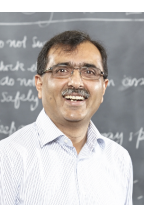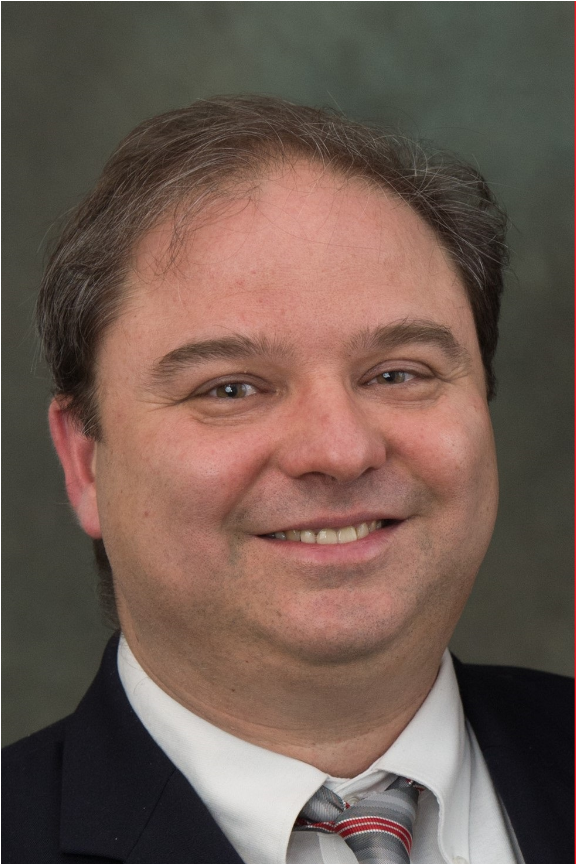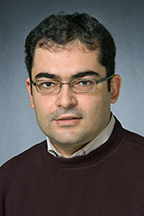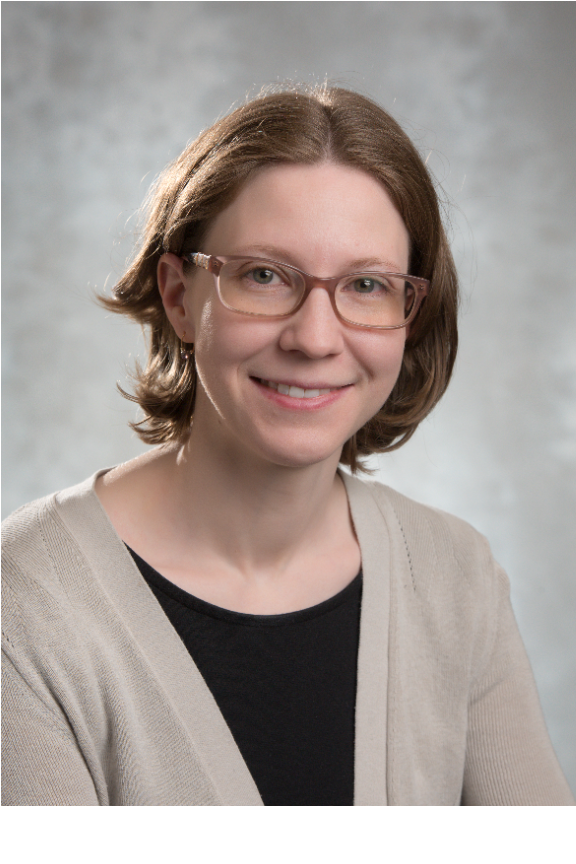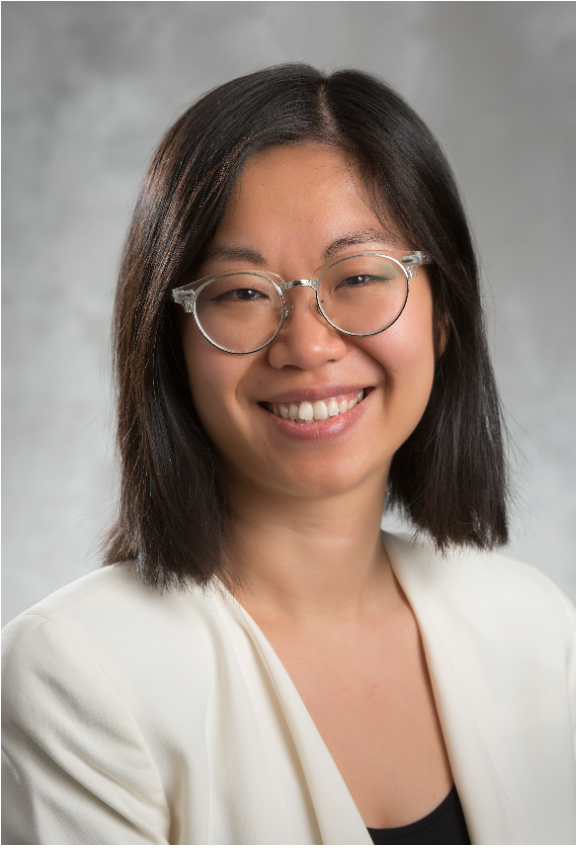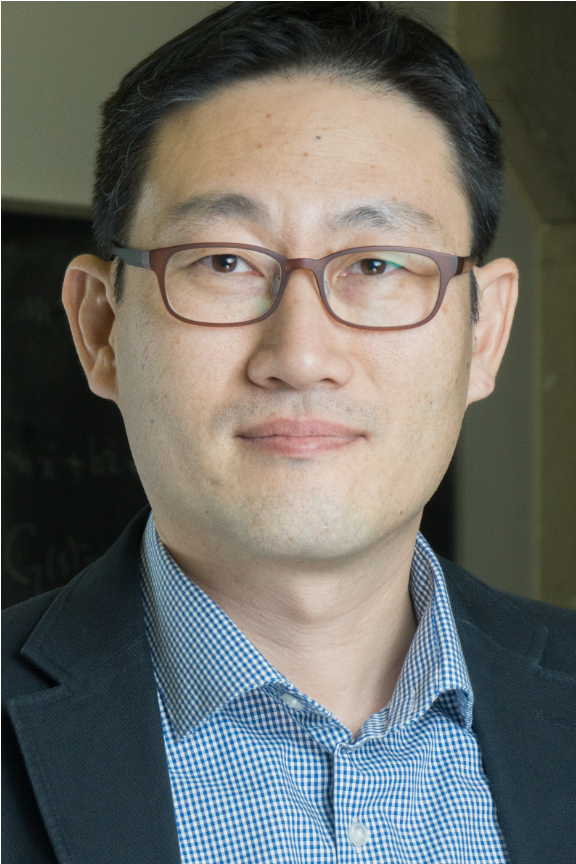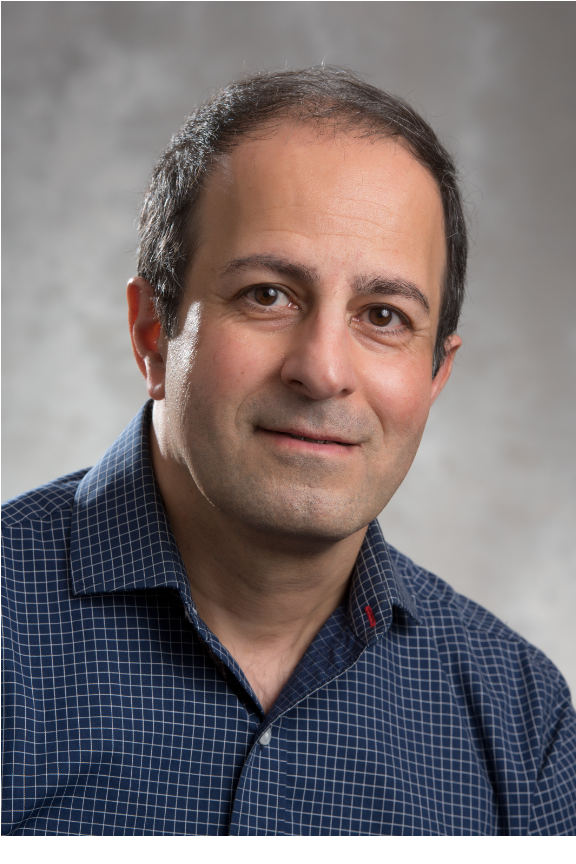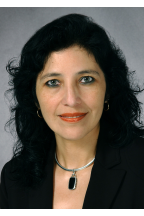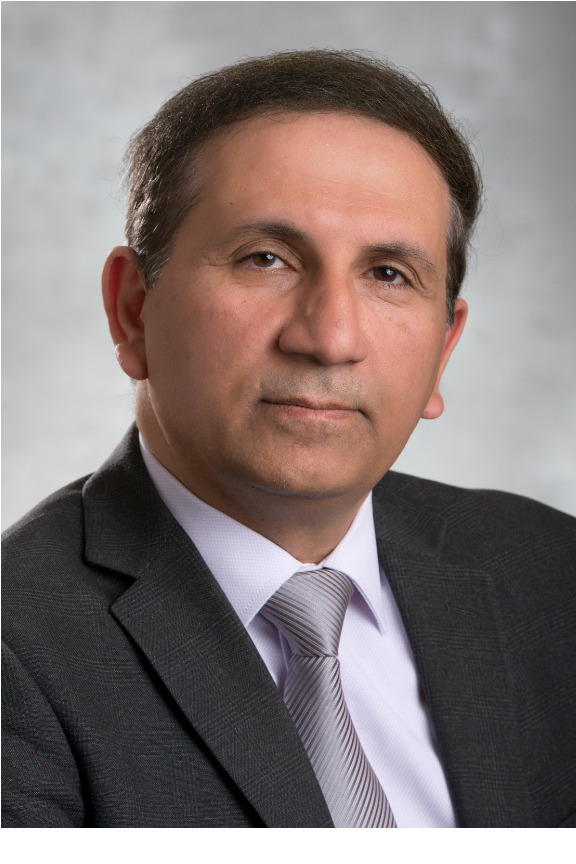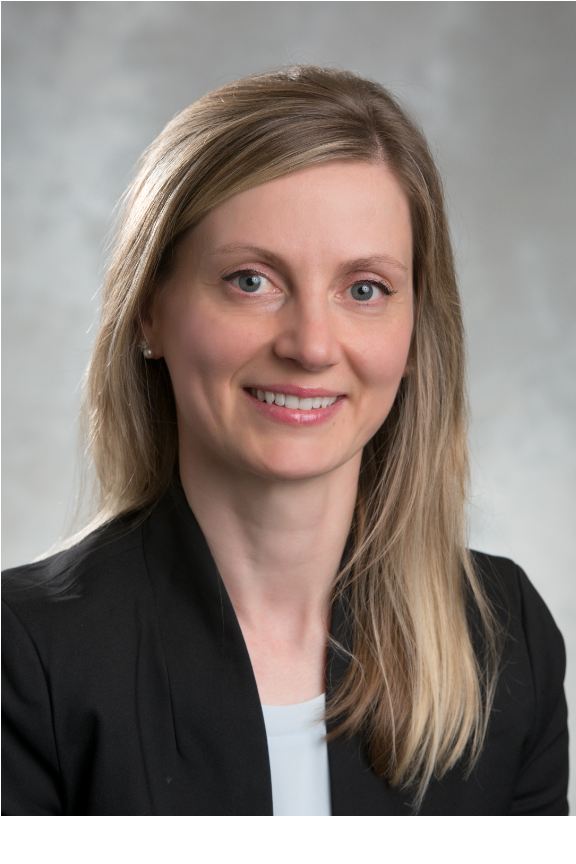Specific areas of research include:
- Active and Interactive Robotics
- Advanced Manufacturing
- Additive Manufacturing, Modelling and Simulation
- Autonomous and Vehicle Systems
- Biomechatronics Biosensors
- Cooperative adaptive Mechatronic systems lab
- Human Centred Robotics and Machine Intelligence
- Maglev Microrobotics
- Mechanical Systems and Controls
- Mechatronic Vehicle Systems
- Neuromechanics and Assistive Robotics
- Robo Hub
- Robotics and Controls
Professor Information:
Research Interests
- Assistive Robotics
- Human-Robot Interaction
- Machine Learning
- Rehabilitation Engineering
- Neuromechanics and Sensorimotor Modeling
- Neural Control of Movements
- Intelligent Systems
- Wearable Systems
- Applied AI
- Assistive Robotics
- Human-Robot Interaction
- Rehabilitation Engineering
- Neuromechanics and Sensorimotor Modelling
- Neural Control of Movements
- Intelligent Systems
- Wearable Systems
- System Identification
Professor Bedi’s research interests are in flank milling, the development of tool path strategies, the design of NC controllers, 5-axis numerically controlled machining, the modeling of the machining process and the design of NC machines. His research expertise lies in automated polishing, complex curve machining methods, efficient tool path planning, gouge detection and avoidance mechanisms, machined surface evaluation, and surface finish estimation.
- Flank milling
- Development of Tool Path Strategies
- Design of NC Controllers
- 5-Axis Numerically Controlled Machining
- Modeling of the Machining Process (PAM and MPM)
- Design of NC Machines
- Ornamental Wood Working
- Gouge detection and Avoidance Mechanisms
- Machined Surface Evaluation
- Surface Finish Estimation
- Mechatronics
- Automotive
Professor Erkorkmaz’s research interests are in the areas of precision manufacturing, machining, and dynamics; controls, and optimal trajectory planning for machine tools; with the objective of increasing the productivity, part quality, and resource efficiency in manufacturing operations.
Research Interests
- Precision Engineering, Dynamics, Controls, Manufacturing, Mechatronics, Automotive, Advanced Robotics, Controls and Precision Tooling, Digital Factories, Digital Design and Fabrication Technologies, Embedded Systems, Sensors and Devices, Machining Automation, Additive Manufacturing, Advanced Manufacturing
- Precision Engineering
- Dynamics
- Controls
- Manufacturing
- Mechatronics
- Automotive
- Advanced Robotics
- Controls and Precision Tooling
- Digital Factories
- Digital Design and Fabrication Technologies
- Embedded Systems
- Sensors and Devices
- Machining Automation
- Additive Manufacturing
- Advanced Manufacturing
Baris Fidan is a Professor in Mechanical & Mechatronics Engineering, with cross appointment in System Design Engineering and Electrical & Computer Engineering at the University of Waterloo. He is a senior member of the Institute of Electrical and Electronics Engineers (IEEE) and the American Institute of Aeronautics and Astronautics (AIAA).
His research interests include cooperative and adaptive control, system identification, nonlinear system theory, multi-agent systems and sensor networks, robotics and intelligent systems, and various control applications including vehicular controls and control of mechatronic and biomedical systems.
- Adaptive control
- Nonlinear control
- System identification
- Sensor networks
- Multi-agent systems
- Robotics
- Operational Artificial Intelligence
- High performance flight control
- Autonomous and Connected Car
Graduate studies
- Not currently accepting applications for graduate students
Research Interests
- Robotics
- Collaborative robots
- Human-robot interaction
- Human Motion Analysis
- Humanoid Robots
- Optimal control
- Robotics
- Collaborative robots
- Human-robot interaction
- Human Motion Analysis
- Humanoid Robots
- Optimal control
Research Interests
- Engineering education
- Experiential learning
- Use of technology for teaching
- Engineering education
- Experiential learning
- Use of technology for teaching
- Real-time sensor fusion
Professor Jeon’s expertise lies in the broad areas of mechatronics, dynamic systems, instrumentation and control. His research projects include Sensing-Rich Drive Trains, Multimodal Sensory Feedback for Dexterous Manipulation, Non-Linear Dynamics of Controlled Mechanical Systems, Autonomous and Self-Sustaining Systems.
Professor Jeon is the recipient of the 2022 AKCSE/KOFST Engineer of the Year Award, the Rudolf Kalman Best Paper Award from ASME for the year 2010 and the Discovery Accelerator Supplement Award from the NSERC for the year 2015.
He is a member of ASME, IEEE and CSME. He serves as an associate editor for ASME Journal of Dynamic Systems, Measurement and Control (2015 ~ 2021), IEEE Transactions on Automation Science and Engineering (2015 ~ 2018), IEEE/ASME Transactions on Mechatronics (2020 ~ ) and IEEE Robotics and Automation Letters (2022 ~ ).
Research Interests
- Keywords: Automation, Robotics, Control, Intelligent Systems
- Automation
- Robotics
- Control
- Intelligent Systems
- Estimation
- Sensors and sensing systems
- Nonlinear mechanics
Professor Khajepour’s areas of research are concentrated on vehicle systems. This includes the development of hybrid powertrains (electric and air hybrid engines), component sizing and power management design through concurrent optimization, vehicle modeling through real time simulation and hardware-in-the-loop, active and adaptive suspension systems, and vehicle stability. The driving force of professor Khajepour’s research is the modelling and control of dynamic systems. His research has also extended to ultra high-speed robotics, automated laser fabrication, and micro-electrical-mechanical systems.
Professor Khajepour’s research has resulted in several patents, technology transfers, and over 320 journal and conference publications including three books and six book chapters.
- Hybrid vehicles
- Suspension systems
- Vehicle noise, vibration and harshness (NVH)
- Vibration analysis and control
- Modeling and control of laser cladding
- Automation and robotics
- Mechatronics
- Automotive
- Autonomous and connected car
- Vehicle dynamics and systems control
- Additive manufacturing
- Advanced manufacturing
- Robotics
Professor Khamesee’s research interests are in microrobotics and micromanipulation using magnetic levitation, magnetically driven medical microrobots for drug delivery and microsurgery, smart structures and actuators, and the development of a cost-effective prosthetic leg.
He is also the Director of Maglev Microrobotics Laboratory, which studies the design and development of magnetically levitated (Maglev) robots. A magnetic Levitation setup enabling high precision 3D remote positioning was built. The lab is also working on the development and industrialization of various applications of magnetism such as electromagnetic energy harvesters for human locomotion and regenerative electromagnetic suspension system for vehicles, and non-destructive testing for detecting cracks and defects in live pipelines.
Dr. Khamesee is a Co-PI in the development of RoboHub through a large CFI grant. His research team designed, fabricated, and installed a Magnetic Levitation Floor in the RoboHub for flexible manufacturing applications.
- Mechatronics
- Microrobotics
- Magnetic levitation
- Micromanipulation
- Automation and robotics
- Microactuator
- Biomechanics and Biotechnology
- Automotive
- MEMS
- Connectivity and Internet of Things
- Electromagnetic Actuators
- Additive Manufacturing
- Robotics
- IoT
- Devices
- Energy harvesting
- Advanced manufacturing
Research interests
- Artificial Intelligence
- Intelligent Control
- Mechatronics
- Automotive Design Modeling & Control of Advanced Mechatronics Systems
- Modular and Reconfigurable Robotics & Automation
- Autonomous Navigation and Mobile Manipulation
- Computational Intelligence
- Advanced robotics
- Autonomous vehicles
- Hybrid and electric vehicles
- Big data/analytics
- Sensors and devices
- Autonomous and connected car
- Advanced Manufacturing
- Operational Artificial Intelligence
- Artificial Intelligence
- Intelligent Control
- Mechatronics
- Automotive Design Modeling & Control of Advanced Mechatronics Systems
- Modular and Reconfigurable Robotics & Automation
- Autonomous Navigation and Mobile Manipulation
- Computational Intelligence
- Advanced robotics
- Autonomous vehicles
- Hybrid and electric vehicles
- Big data/analytics
- Sensors and devices
- Autonomous and connected car
- Advanced Manufacturing
- Operational Artificial Intelligence
Research Interests
- human-robot interaction
- wearable robots
- rehabilitation robots
- intelligent assistive devices
- humanoid robots
- human movement analysis
- optimal control
- model-based control
- multibody systems modeling
- Motion Intelligence Robotics
- Wearable and humanoid robots
- Human motion analysis
Research interests
- Multifunctional MEMS/NEMS & MOEMS Sensors
- MEMS/NEMS Reliability
- MEMS Optical Interferometry
- Integrated Microsystems
- Biomechanics and Biotechnology
- Microfluidic Based Sensors
- Automotive
- MEMS materials and functionalization
- Nanotechnology
- Mechatronics
- Hybrid and electric vehicles
- Wearable technology
- Energy storage
- Sensors and devices
- Nano-biosystems
- Nano-electronics
- Nano-materials
- MEMS/NEMS sensor systems and packaging for harsh environments
- Micro- and Nano Electro Mechanical Systems (MEMS and NEMS) for harsh environments
- Physical sensors and devices
- Micro-Opto-Electro-Mechanical Systems (MOEMS) and adaptive Optics
- BioMEMS sensors
- MEMS packaging and reliability
- Integrated microsystems
- Micropower Generation (MPG)
Research Interests
- robotics, trajectory planning, motion planning, modeling, robotic machining, friction, Mechatronics
Scholarly Research
Research interests include engineering education and strategies and skills for academic success. Other research interests include mobile-robotic manipulators, multi-armed robotic systems, trajectory planning, and modeling and simulation of mechatronic systems.
- Robotics
- Trajectory planning
- Motion planning
- Modeling
- Robotic machining
- Friction
- Mechatronics
His research is having a significant impact in the young AM field. He has published 135 AM-related journal articles (received >5800 citations as of October 2021). His research has been recognized through many awards/honours.
Research Interests
- Additive Manufacturing
- In-situ monitoring and closed-loop control of Additive Manufacturing
- Laser Material Processing
- Mechatronics Design
- Bio-additive Manufacturing
- Additive Manufacturing of Smart Structures with Embedded Optical Sensors
- Advanced Manufacturing
- Additive manufacturing
- Laser metal powder-fed and powder-bed additive manufacturing: Modeling, real-time control and process adoption
- Smart structures with embedded optical sensors developed by additive manufacturing,
- Bio-additive manufacturing
Research interests
- Assistive Technology
- Rehabilitation Engineering
- Connectivity and Internet of Things
- Robotics
- Neuromotor control
- IoT
- Devices
- Biomedical Engineering
- Bioengineering
- Assistive Technology
- Rehabilitation Engineering
- Connectivity and Internet of Things
- Robotics
- Neuromotor control
- IoT
- Devices
- Biomedical Engineering
- Bioengineering
Research Interests
- Additive manufacturing
- Advanced manufacturing
- Powder bed fusion
- Binder jetting
- Process modeling
- Digital design optimization
- Process optimization
- Process modeling
- Data analytics
- Monitoring and controls strategies
Scholarly Research
Dr. Vlasea’s research focuses on innovative design process optimization and adoption of new materials for powder bed fusion and binder jetting additive manufacturing. Her research goals are to bridge the digital and technological gaps necessary to improve part quality process repeatability and reliability. She is currently the Associate Research Co-Director of the Multi-Scale Additive Manufacturing (MSAM) Lab at the University of Waterloo. Dr. Vlasea is also involved with the Society of Manufacturing Engineers (SME) on the Additive Manufacturing Technical Advisory Group and the SME Digital Design and Manufacturing Advisory Committee. Dr. Vlasea has also a member of the ASTM F42 standards committee on AM technologies Standards Council Canada ISO/TC 261 - additive manufacturing committee.
- Digital design software tools for additive manufacturing
- Metrology, monitoring and controls strategies for additive manufacturing systems
- Direct energy deposition, power bed binder jetting, material extrusion technologies
Adjunct professors
Research videos
Learn about the University of Waterloo's role in helping lead the transition to manufacturing, with key strengths in additive manufacturing, advanced materials, advanced robotics and mechatronics, Industry 4.0, IOT, and nanotech manufacturing.
Notable funding recipients include:
- Prof. Amir Khajepour received over $20 million in research funding from Automobile Partnership Canada’s (APC), Green Intelligence Transportation Systems (GITS) and Natural Sciences and Engineering Research Council of Canada (NSERC) over the past five years.
- Prof. Ehsan Toyserkani received over $2 million in funding from the Ontario Research Fund (ORF) for research in Additive Manufacturing in 2015.
- Prof. William Melek received over $4 million in funding from the Canada Foundation for Innovation (CFI) and the Ontario Research Fund (ORF) in 2015 for the RoboHub: multi-robotic teams test facility.
- Prof. Sanjeev Bedi and Fathy Ismail received over $3 million in CFI and ORF funding for precision and five axis machining research.
The group’s extensive and wide-ranging research has garnered interest and facilitated wide range collaborations with industry leaders such as General Motors, Nuvation, GE Aviation and Pratt and Wittney, to name a few.
Many of the faculty members within the Automation and Controls Group have received recognition for their research excellence:
- Prof. Khajepour received the PEO Research Excellence Medal in 2014 and EIT Canada Fellowship in 2015. He is a Tier 1 Canada Research Chair (CRC) as one of the world’s leading scientists in the area of automotive research.
- Prof. Toyserkani has been awarded an Early Research Award (ERA) in 2007. He is also a University Research Chair in Additive Manufacturing.
- Prof. Kaan Erkorkmaz was awarded an ERA in 2007 for his research on enabling the execution of complex movements in minimum time with highest accuracy, in multi-axis machines.


